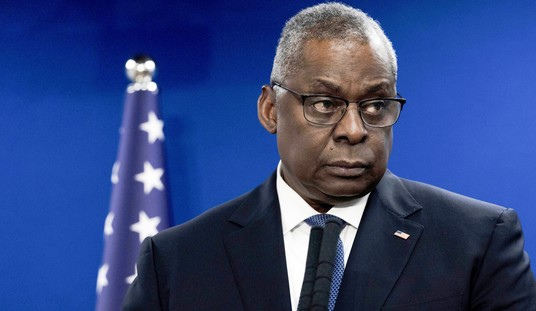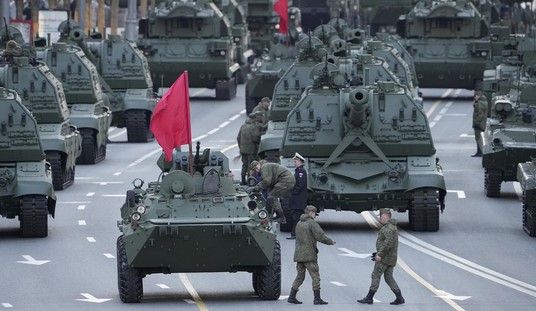The likely answer is “yes” since it appears the administration is of the opinion that if it doesn’t act, it will appear weak and ineffective. Demagoguery and ego have combined to get us to this point. There seems no way out without a military response. However, the question remains how effective any strike on Syria will be in reality if it is, as the President has said, short, limited and tailored (just muscular enough not to be mocked).
After leaking the proposed plan all over the place it is unsurprising that what most of us knew would happen has begun to happen in Syria:
In recent days, U.S. intelligence agencies and the Pentagon have watched with alarm as Mr. Assad has taken advantage of the Western deliberations to spread out his forces, complicating U.S. planning for strikes.
“We know [Assad] has been dispersing assets,” said a senior U.S. official briefed on the intelligence.
U.S. officials said Mr. Assad has moved assets such as military helicopters and artillery pieces around the country, forcing a U.S. recalibration of the possible military response.
If Mr. Obama sticks with what originally was a finite set of prospective military and intelligence targets, officials said, then cruise-missile strikes would cause less damage than originally intended because at least some of the targets have been taken out of the line of fire.
Officials said Mr. Obama could adjust to Mr. Assad’s tactics by expanding the number of strikes to hit more targets, but doing so could increase the risk that U.S. cruise missiles will cause unintended damage, including civilian casualties, officials said.
Another senior official said the dispersal of Mr. Assad’s military assets was “certainly detrimental” to target planning.
Funny how that works, isn’t it?
Meanwhile, US military officers have deep concerns over a strike on Syria:
The recently retired head of the U.S. Central Command, Gen. James Mattis, said last month at a security conference that the United States has “no moral obligation to do the impossible” in Syria. “If Americans take ownership of this, this is going to be a full-throated, very, very serious war,” said Mattis, who as Centcom chief oversaw planning for a range of U.S. military responses in Syria.
The potential consequences of a U.S. strike include a retaliatory attack by the Lebanese militant group Hezbollah — which supports Assad — on Israel, as well as cyberattacks on U.S. targets and infrastructure, U.S. military officials said.
And it also stirs the possibility of terror attacks on US embassies, interests abroad and even the homeland. Gen. Mattis is correct. If the US strikes Syria, then the US takes ownership of this war. By that I mean if Assad then uses chemical weapons again, we’re in a position of having no choice but to address their use again.
Marine Lt. Col. Gordon Miller, a fellow at the Center for a New American Security, warned this week of “potentially devastating consequences, including a fresh round of chemical weapons attacks and a military response by Israel.”
“If President Asadwere to absorb the strikes and use chemical weapons again, this would be a significant blow to the United States’ credibility and it would be compelled to escalate the assault on Syria to achieve the original objectives,” Miller wrote in a commentary for the think tank.
An acceptable risk?
Even the Chairman of the Joint Chiefs of Staff has tried to warn the administration off of this path:
Gen. Martin Dempsey, chairman of the Joint Chiefs of Staff, has warned in great detail about the risks and pitfalls of U.S. military intervention in Syria.
“As we weigh our options, we should be able to conclude with some confidence that use of force will move us toward the intended outcome,” Dempsey wrote last month in a letter to the Senate Armed Services Committee. “Once we take action, we should be prepared for what comes next. Deeper involvement is hard to avoid.”
Dempsey has not spoken publicly about the administration’s planned strike on Syria, and it is unclear to what extent his position shifted after last week’s alleged chemical weapons attack. Dempsey said this month in an interview with ABC News that the lessons of Iraq weigh heavily on his calculations regarding Syria.
“It has branded in me the idea that the use of military power must be part of an overall strategic solution that includes international partners and a whole of government,” he said in the Aug. 4 interview. “The application of force rarely produces and, in fact, maybe never produces the outcome we seek.”
But the application of force seems to be the only tool in the Obama bag at the moment. And Dempsey is correct. It isn’t particularly difficult for the US to reach out and swat someone. But what is and always has been difficult is to predict what will follow such an application of force. The law of unintended consequences has a terrible history of rearing its ugly head each and every time force is applied in this manner.
As for the critical question, the question that all military operational planners ask first and then tailor a plan to achieve … well there is no obvious answer.
“What is the political end state we’re trying to achieve?” said a retired senior officer involved in Middle East operational planning who said his concerns are widely shared by active-duty military leaders. “I don’t know what it is. We say it’s not regime change. If it’s punishment, there are other ways to punish.” The former senior officer said that those who are expressing alarm at the risks inherent in the plan “are not being heard other than in a pro-forma manner.”.
The administration can’t answer that question and has provided no guidance about endstate to those stuck planning this misadventure. And, as noted, while there may be a semblance of debate, in fact the administration is likely going through the motions of “listening to all sides” when, in fact, the decision to act militarily has been decided. It is down to how big or how small the strike will be. And, as we see above, Assad is doing everything he can to make Obama’s deliberations and decision making as difficult as he can
~McQ







Join the conversation as a VIP Member